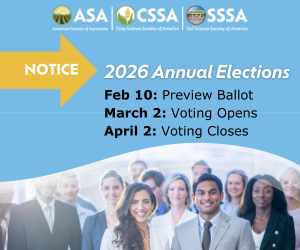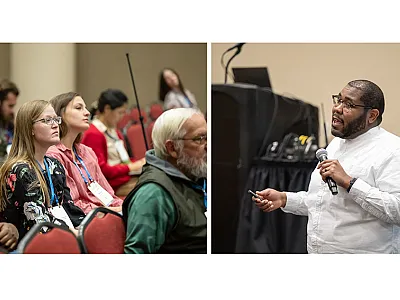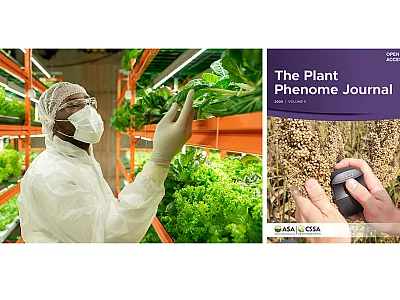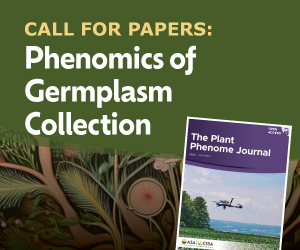Navigating transitions and meeting new expectations: Insights from early career scientists

As you approach the completion of your terminal degree (M.S. or Ph.D.) in the agricultural sciences, the path forward presents both exciting opportunities and challenging decisions. Drawing on the experiences of early career scientists, this article offers practical advice for transitioning into early career roles across academia, industry, and government or non-profits. It explores how to navigate shifting expectations, develop key professional skills, and strategically build a career path while balancing work and life.
As you approach the completion of your terminal degree (M.S. or Ph.D.) in the agricultural sciences, the path forward presents both exciting opportunities and challenging decisions. Some of the challenges once you get a job stem from changes in expectations to provide leadership and value to your job rather than working towards a degree. But this time also provides ample opportunity to explore your creativity, spark new innovation, and jump-start a successful career path.
The agricultural sciences (agronomy, crop science, and soil science) offer a canvas of career trajectories spanning academia, industry, and government/non-profit sectors. Each path requires strategic preparation and thoughtful consideration of your interests, skills, and long-term goals. Quite often, though, opportunities in the job market determine what options you can choose from—a trade-off between what you want vs. what you can get.
Career pathways in agricultural sciences
Academia

Whether you're considering a postdoctoral position (for Ph.D. graduates) or direct entry into the workforce, timing your job search and understanding employer expectations will be crucial to your success. For those contemplating the academic route (postdoc positions, professorships, or research institutions), questions about whether to pursue an internship (M.S.) or postdoc (Ph.D.), what to look for in these positions, and how to maximize this training period require careful reflection. Ideally, your internship or a postdoctoral position would help you to apply the skills you have learned in your program (research, writing, data analysis, etc.) and build upon your resume by adding skills (such as grant writing, networking, and project management) to deepen your knowledge and experience.
Since a postdoctoral position is a transitional position, it also buys you additional time to further consider your future career goals and prepare for job applications. Some academic roles, such as certain postdoctoral or faculty positions, can also have an extension and outreach component. Also, a pathway after graduation could be to pursue an extension-focused career, such as becoming an extension agent for a state, county, or district.
Industry
Those drawn to industry positions (with companies like Bayer, Syngenta, Corteva, or various bioscience firms and start-ups) need to understand how to translate their academic expertise into value for commercial enterprises. Doing an internship or a co-op (cooperative learning experience) program during a graduate degree is a great way to experience the fast-faced, output-based environment of an industry as well as building connections. Visiting the booths of industries and making those connections, for instance during the Societies' CANVAS meeting, is a great way to network with companies. Applying to mentorship programs and other fellowships offered by these companies can be really useful to establish this connection as well.
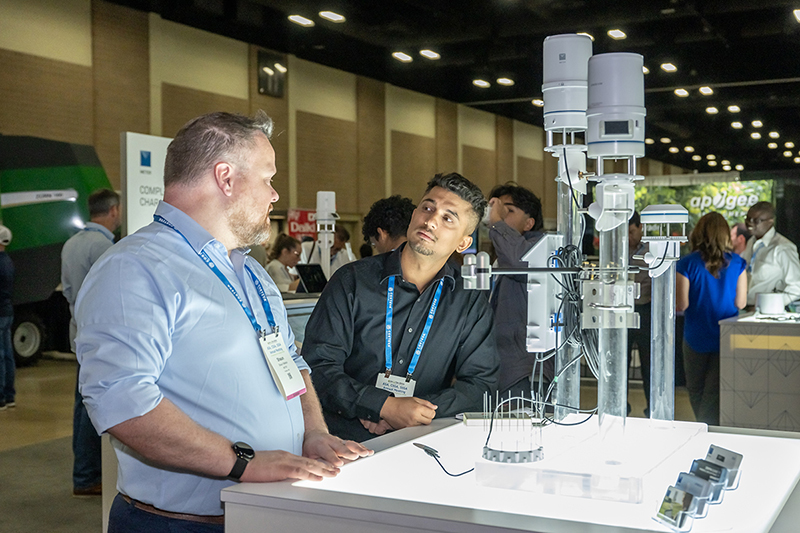
Applying to industry positions requires that you polish your resume accordingly to emphasize your skills and develop your soft skills along with your professional skills. For instance, interviews for an industry job can often be conducted by human resources (HR) personnel and may consist of an extensive test of your behavioral skills. This contrasts with academia jobs where professional skills are often prioritized. Preparing well for these interviews is important. Having someone within the industry as a connection can be useful to help guide you through these steps more closely.
Government and non-profit organizations
Government organizations (such as USDA) and non-profit organizations (e.g., Soil Health Institute, Rodale Institute, etc.) offer yet another pathway with distinct application processes, professional development, and service opportunities. These institutions typically offer roles that combine scientific research with public service and social impact.
Government positions—whether at national, regional, or international levels—often feature structured hiring processes through official portals, competitive benefits, and the opportunity to influence policy and resource management at scale. The USDA, for instance, offers roles spanning research, conservation, and policy implementation with structured hiring processes often requiring navigation of federal job portals (e.g., USAJobs). Often though, these government positions and fellowships require you to be a citizen in order to apply while some exceptions exist for postdoctoral positions (check USDA ORISE).
Non-profit organizations generally focus on specific missions like sustainable agriculture, soil health, food security, or environmental conservation, valuing both technical expertise and genuine alignment with organizational goals. Research-focused non-profits like the Soil Health Institute provide environments where scientific innovation directly informs sustainable practices. These positions provide unique advantages: applying research to real-world challenges, working on complex multidisciplinary projects, and developing versatile skill sets that extend beyond laboratory settings to include communication, policy analysis, and community engagement. Organizations such as the Rodale Institute combine research with advocacy, creating positions that bridge scientific inquiry and practical application.
Making career decisions: postdoc, faculty, or industry?
Even if you are close to graduating, it is not uncommon to be undecided about which career direction you want to explore (Figure 1). Quite often, there is a little luck involved concerning what jobs are available at the time you are close to finishing your degree since available positions fluctuate due to retirement, government changes, and economic or funding volatility. It never hurts to apply to a position when the time is right and it's a job you are passionate about. When looking at a job description, please understand that when the hiring committee or human resources officer wrote the description, they were writing it if as all the wants in the world will exist in one person. Look at the required and desired qualifications for a position before applying, and make sure you're going to have at least the required qualifications within a few months of the expected hiring date. Even if you don’t get an interview, you will have gained valuable experience by applying.

Useful tips
Sign up for job notifications through job portals such as the Societies’ Career Center, indeed, HigherEdJobs, USA jobs, company career portals, etc.
Have supporting documents (CV, resume, state of research, teaching, etc.) ready but tailorable for position descriptions.
Update your resume frequently, upload your resume in trustable job sites.
Maintain a professional, updated LinkedIn profile.
Sign up for professional webinars and workshops.
Engage with your network, frequently!
To know whether or not you're ready for a position or you need a postdoctoral position truly depends on a variety of things, such as what were your experiences before and graduate school and what the open positions are looking for, etc. Academic positions fall into a combination of two to three main categories—teaching, research, extension, and service. It's common to see two-way splits (i.e., 80% extension, 20% research), and there are three-way splits (research, teaching, and service) too. Think about how your experiences fit into that role—shape your experiences/your story to fit what's needed if applicable.
In some situations, the graduate program may have been limited, and the best way to get experience in a different lab, university, or sector (i.e., USDA-ARS) could be a postdoctoral opportunity. Postdoctoral roles give you the chance to publish more papers in high-impact journals, work independently in research programs, and build specialized skills (depending on the postdoc) such as advanced lab techniques. They also may offer new opportunities for collaboration and mentoring.
Do not think that you can't apply to what appears to be a dream job just because you don't have postdoctoral experience. Everyone's graduate school experience is different—leverage that in the job market, and be willing to rely on some luck.
Navigating the transition: new expectations and responsibilities
Transitioning from graduate studies to a professional role brings significant gear shifts in expectations and responsibilities (Figure 2). Unlike the structured environment of graduate studies where your primary focus was a single dissertation project, you may now be expected to lead different initiatives, manage multiple concurrent projects, and deliver tangible value to your organization or company. You are now considered an expert in the subject, and people will often lean on you for knowledge, skills, and efficient work.
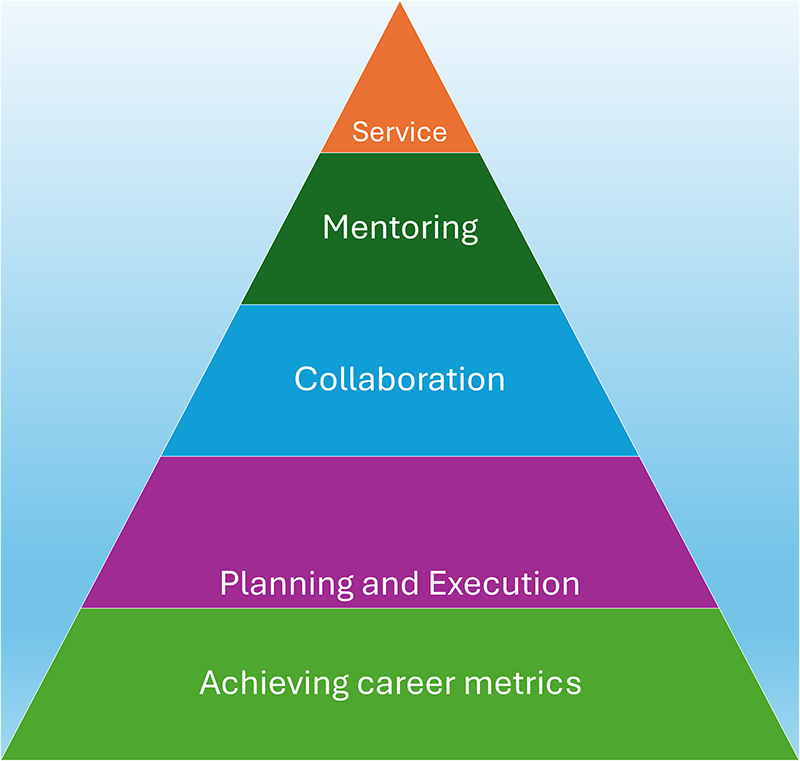
Ability to work independently as well as in collaboration becomes of paramount importance—you'll often need to make decisions autonomously while aligning your work with broader organizational goals. Output expectations can sky-rocket dramatically: instead of coursework and a thesis, you may be responsible for publications, grant proposals, product development, policy briefs, or technical reports, depending on your sector. In addition to these, if you are in a faculty position, for example, you are expected to run your own lab, mentor students, perform administrative duties, and so on. The pressure for measurable results often intensifies with shorter timelines and clearer deliverables than during graduate work.
Some academic roles have an extension and outreach component attached to them. Whether you dive into extension as a county, district, local level, or as a state specialist position, the stakeholders are the ones who drive your schedule. At a local level, you answer to a county or a district board of local members about engagement and involvement in the community while balancing various areas of programming needs. These programming areas may not be something you have direct training in (i.e., you may get a livestock or a 4-H youth development question when you have an agronomy/soils/horticulture background). If in a state or regional specialist role, you may have a specific focus (i.e., state fertility specialist or plant pathologist), but you'll be expected to fill the needs of the stakeholders with applied research, programming of field events and training, and working with other specialists to fulfill the greater extension goal. Extension systems are intertwined with land grant universities, but not every state's extension mission is exactly the same. While extension positions can lead to long days, it is still possible to foster a work–life balance.
Strategic job search and networking
A good rule of thumb is to begin looking for positions six to eight months before finishing your degree. There will be some nuances for whether you're finishing a M.S. or a doctoral degree, but either pathway relies on networking to find the position. The networking rule we often hear is, "It's not what you know but who you know," but networking is important even after you have accepted your first position post-graduation; therefore, the saying could then be adjusted to, “It's not who you know, but who knows you.” In your new position, no matter the pathway, you're going to need people invested in the project areas you want to work in.
From the academic–university perspective, getting to know other faculty is key to learn what they work on, upcoming grants they may be writing that you can be involved with, and gain from their experience in the system since every university differs in its funding cycles and the level of assistance available for early career professionals. From an extension point of view, knowing your stakeholders and tailoring your work is critical. This isn't just important for funding, but for ensuring success.

Sometimes when you are early in your career, it can be a lonely road, especially if the company, university, or office have few people at the same stage of life as you. You need to build a support group that helps with your time management, navigating the workplace, mentoring, etc. It is a good idea to lean on a mentorship team to navigate early career progress. For instance, if you are an assistant professor with 50%–50% teaching and research split, having a couple of mentors, one with major teaching and another one with major research appointments, can help guide you through achieving the required matrices for tenure promotion. In an industry setting, this could be your direct supervisor or a parallel mentor. While many employers can help you to identify mentors, it is critical for you to be proactive in establishing a mentorship team in case there isn’t already a plan in place.
Building your professional skill set
The framework for early career researchers integrates interconnected domains—skills, education, values, management, strategy, and vision—to guide growth and professional development and identity formation in the research profession (Figure 3). It is crucial to identify essential competencies in each position—from acquisition of soft skills and technological literacy to work–life balance and collaboration building—but also how these elements work in concert to support researchers in establishing meaningful goals, maintaining boundaries, and navigating the complexities of academic and research environments successfully. Following are some key areas to build your professional skill set.
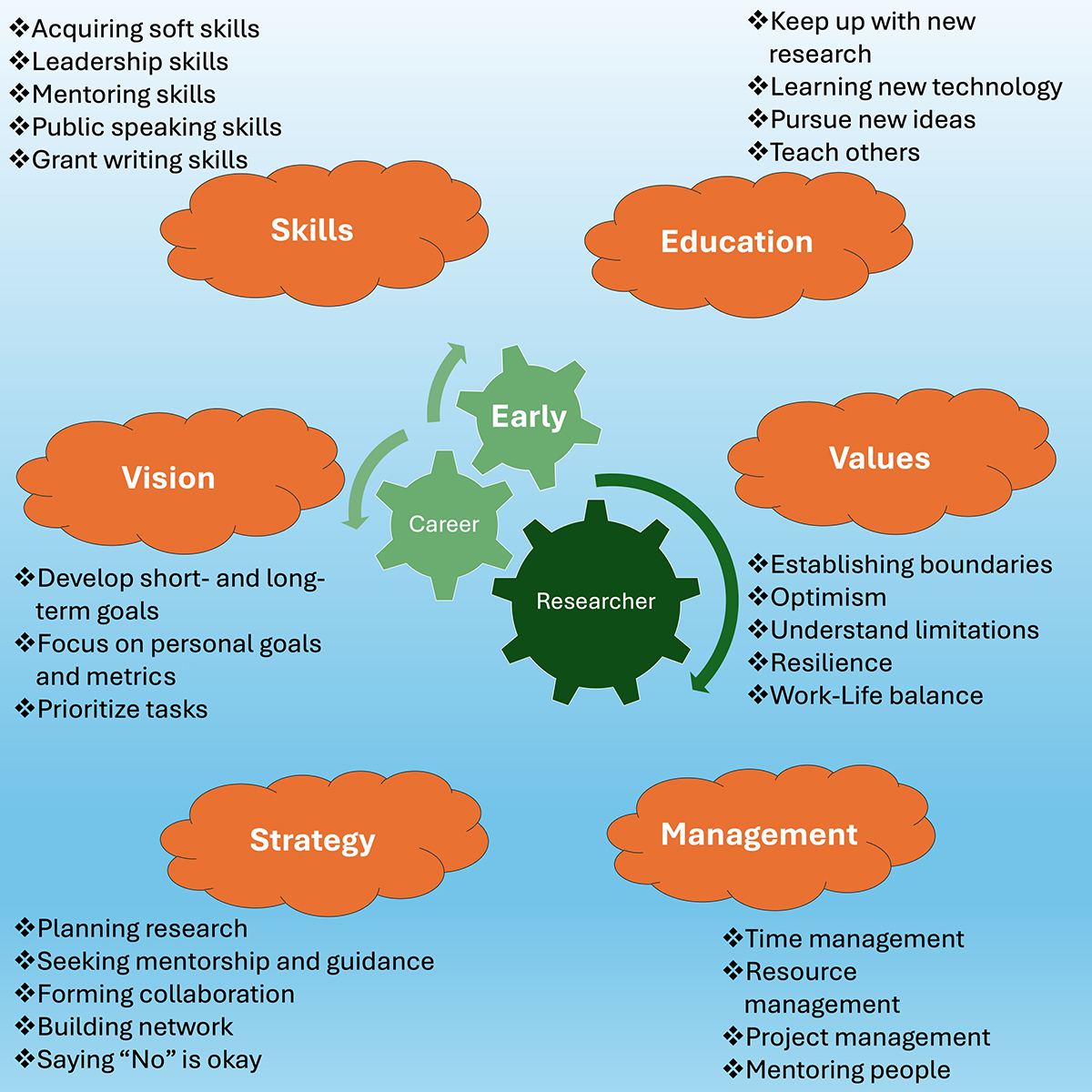
Upskilling
Engaging in opportunities outside of your research program can be very beneficial to your success as an early career scientist. As you think about the transition from education to early career, consider the soft skills and experiences that could benefit you as a professional—for example, effective leadership, time management, active listening, decision making, adaptability, etc. Seeking active involvement in student organizations or leadership during your time as a graduate student, or participating in things like professional science societies as an early career scientist, can be a strong asset for your transition. Additionally, there are several professional development workshops, webinars, and other opportunities offered by the Societies. These are valuable avenues to learn from experienced professionals and experts that will aid in your development as a professional. Soft skills learned from engagement and participation will serve you well through the interview process and in your early career positions.
Additionally, seeking professional certification can be valuable, depending on your career goals. Consider opportunities to converse with Certified Crop Advisers (CCA), Certified Professional Agronomists (CPAg), or Certified Professional Soil Scientists (CPSS) to determine if professional certification might be of benefit for your career path. Certification programs are a great opportunity to broaden your knowledge base and highlight a connection from science and research to the community of practice.
Acquiring funding
Unless you receive exceptional grant-writing experience in your graduate program (depends on university, lab dynamics, major professors, etc.), you may struggle to get large grants the first few years into your first position. This does not mean you're a failure. Ways of gaining experience in grant writing include attending workshops the workplace may have for early career professionals, signing up for webinars through professional societies or funding agencies, volunteering to serve as a reviewer for grants to understand the process, and offering your expertise for grants your peers are submitting.
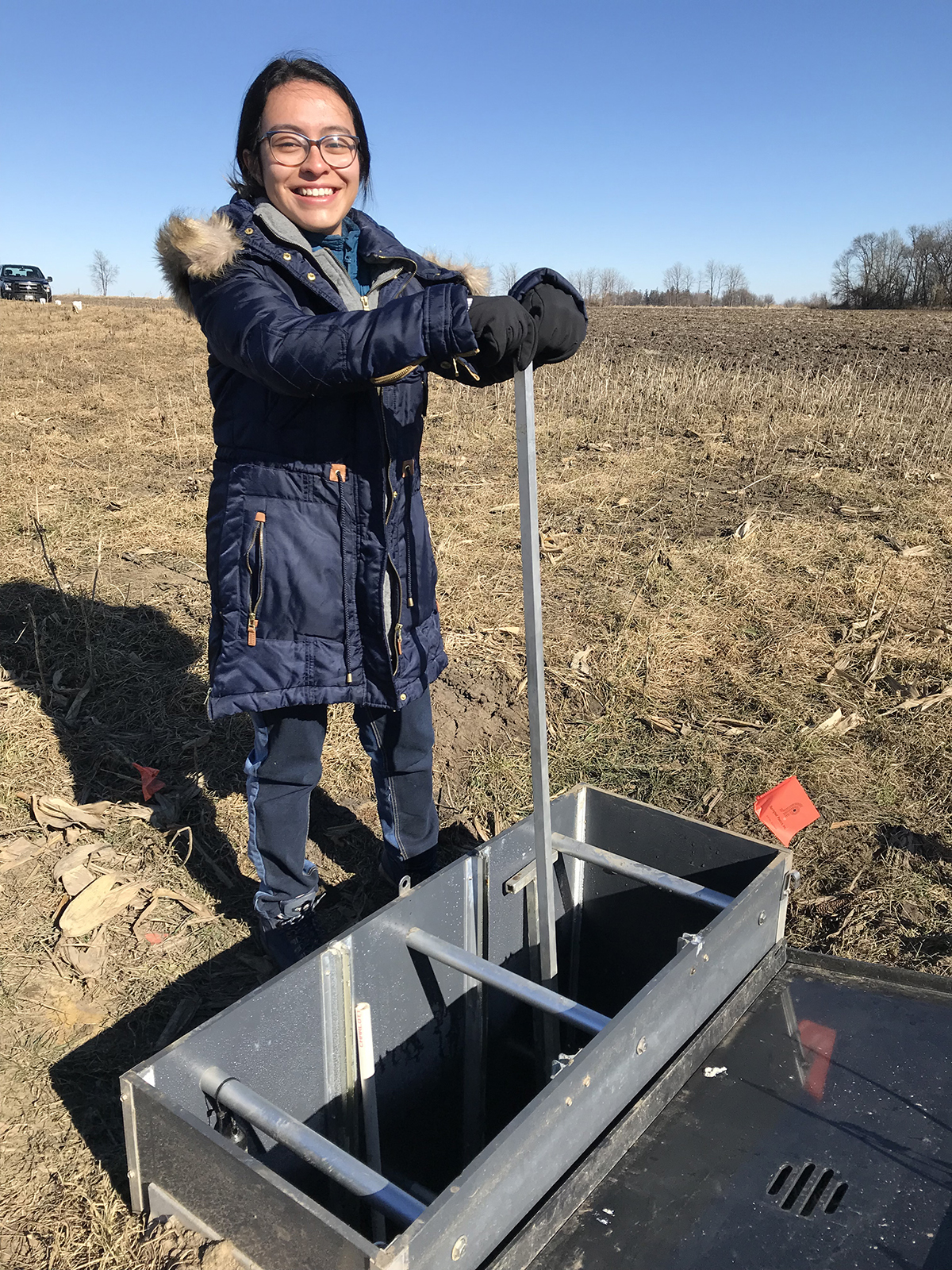
You want to see your name involved in research from the grant side, and that may often mean in your starting years you are acting as a co-PI or supporting investigator who is not getting a large percentage of the funds for your own program. Additionally, if your position is given start-up funds (like many academic positions are), use that as leverage in grants that may require a matching fund.
Developing your research niche
No matter who you are working for in the field of science, you need to have a niche—an area or areas you focus on for research that fulfills the need in literature, farmer/stakeholders, company mission, etc. For some positions and situations, the niche you work in may be very specific as it's part of the job description. For example, a fertility specialist works in fertility management, but the niche area may be field experiments focused on efficiency and economic return for crops in a specific state or region. In other positions where the job title is more vague and you cover a range of cropping systems, you may find ways to be creative to fulfill the needs of stakeholders and what you're passionate about.
In all cases, you’ll want three topic areas (that can be dynamic) that people begin to know you for. You may not be an expert right out of graduate school (no one is), but you want to start making a brand for yourself. You chose to go to graduate school and work with a specific principal investigator or adviser because of what their research was in. You need to do that for yourself.
Building your personal brand
Whether intentional or unintentional, your experiences, actions, and interactions build your personal brand. Think of your personal brand as your reputation and the impression people are left with after they interact with you. Although the areas of crops, soils, and the environmental sciences can be vast, the communities of scientists within a discipline are often tight-knit and small. In many ways, as an early career scientist, your reputation is likely to precede you, and if you've successfully built your personal brand, this will benefit to you. So, how do you directly build your brand in a manner that's beneficial? Think about what makes you authentically you, what you bring to the table as a scientist, team member, or colleague and what you're passionate about and then highlight that through your actions, discussions, and interactions.
Finding work–life balance
While early career stages typically demand considerable investment of time and energy to establish your credential and build a reputation, maintaining a work–life balance remains essential for sustainable success. Strategic approaches include setting clear boundaries, developing efficient time management systems, prioritizing tasks based on impact rather than urgency, and cultivating supportive professional relationships. For instance, you can create a boundary by being explicit that you will only respond to texts or emails during your work hours, except in an emergency.
The secret sauce is often to avoid the common pitfalls of overcommitment, perfectionism, and isolation—instead, focus on building sustainable work habits that will serve your long-term career development while preserving your well-being and personal relationships. Prioritizing self-care, establishing boundaries, and allocating time for friends, family, and yourself will be key for your long-term success. Remember, it is a marathon, not a sprint.
Useful resources
Graduate Student Committee: Connect with us!
This article is a contribution of the ASA, CSSA, and SSSA Graduate Student Committee. If you would like to provide feedback to this committee on its work or want to volunteer with the committee to help plan any of its activities or write articles like this one, please reach out to Jessica Bezerra de Oliveira, the 2025 Chair of the committee!
If you would like to stay up to date with our committee, learn more about our work, contribute to one of our CSA News articles or suggest activities you would like us to promote, watch your emails, connect with us on X or visit: agronomy.org/membership/committees/view/ACS238/members, crops.org/membership/committees/view/ACS238/members, or soils.org/membership/committees/view/ACS238/members.
Text © . The authors. CC BY-NC-ND 4.0. Except where otherwise noted, images are subject to copyright. Any reuse without express permission from the copyright owner is prohibited.



